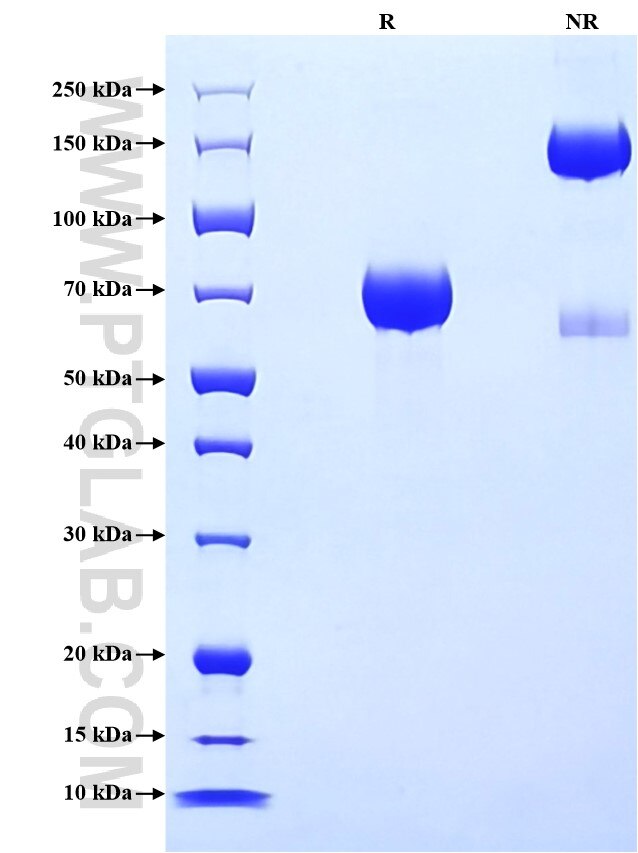Recombinant Mouse CD64 protein (rFc Tag)
Species
Mouse
Purity
>90 %, SDS-PAGE
Tag
rFc Tag
Activity
not tested
Cat no : Eg2107
Validation Data Gallery
Product Information
| Purity | >90 %, SDS-PAGE |
| Endotoxin | <0.1 EU/μg protein, LAL method |
| Activity |
Not tested |
| Expression | HEK293-derived Mouse CD64 protein Glu25-Pro297 (Accession# P26151) with a rabbit IgG Fc tag at the C-terminus. |
| GeneID | 14129 |
| Accession | P26151 |
| PredictedSize | 56.7 kDa |
| SDS-PAGE | 60-80 kDa, reducing (R) conditions |
| Formulation | Lyophilized from 0.22 μm filtered solution in PBS, pH 7.4. Normally 5% trehalose and 5% mannitol are added as protectants before lyophilization. |
| Reconstitution | Briefly centrifuge the tube before opening. Reconstitute at 0.1-0.5 mg/mL in sterile water. |
| Storage Conditions |
It is recommended that the protein be aliquoted for optimal storage. Avoid repeated freeze-thaw cycles.
|
| Shipping | The product is shipped at ambient temperature. Upon receipt, store it immediately at the recommended temperature. |
Background
Fcγ receptor comprises a multigene family of integral membrane glycoproteins that exhibit complex activation or inhibitory effects on cell functions after aggregation by complexed immunoglobulin G (IgG). CD64, also known as FcγRIA, is a high-affinity receptor for the Fc region of IgG. It is expressed by monocytes/macrophages, activated neutrophils, dendritic cells, and early myeloid cells. CD64 functions in both innate and adaptive immune responses.
References:
1. W W Shanaka I Rodrigo, et al. (2006). J Virol. Oct;80(20):10128-38. 2. David A Mancardi, et al. (2013). Blood. Feb 28;121(9):1563-73. 3. Johannes J M L Hoffmann, et al. (2009). Clin Chem Lab Med. 47(8):903-16. 4. J M Kerst, et al. (1993). Blood. Mar 15;81(6):1457-64.
